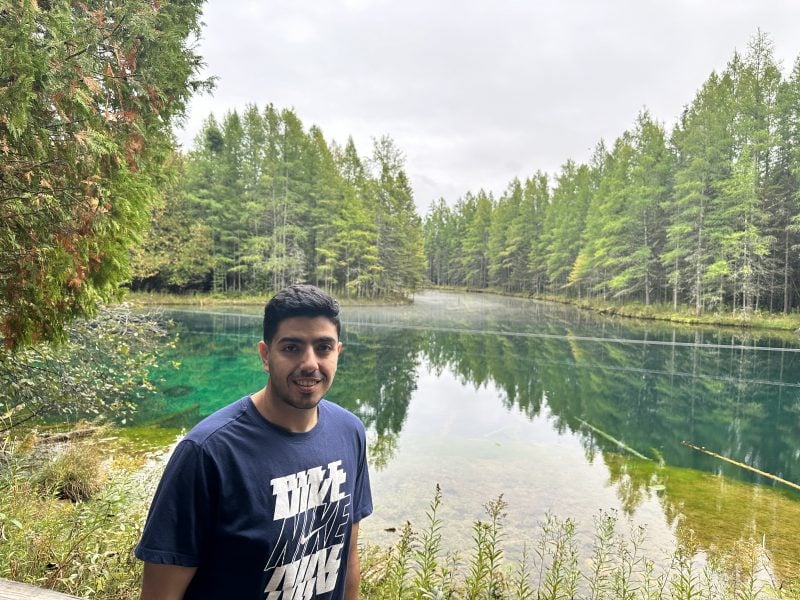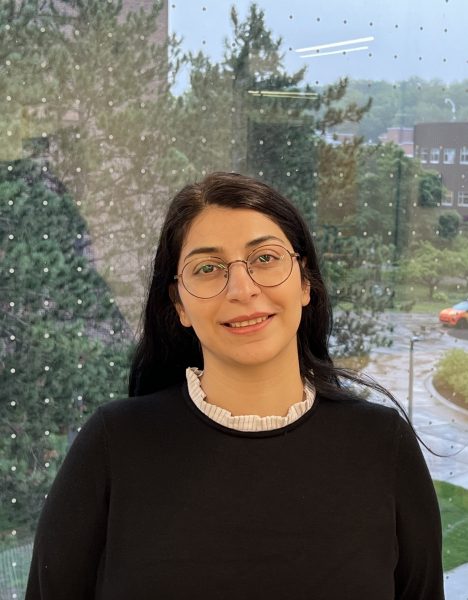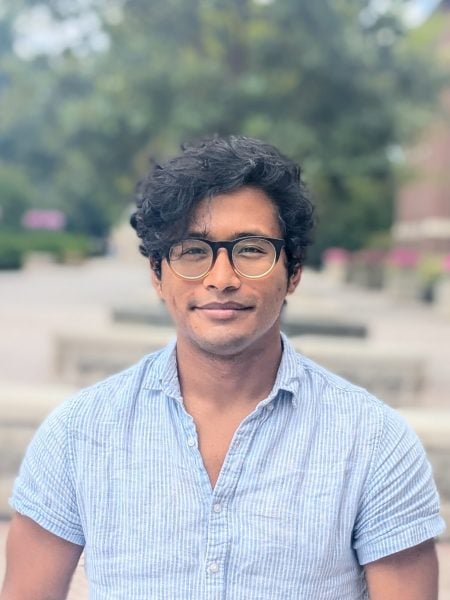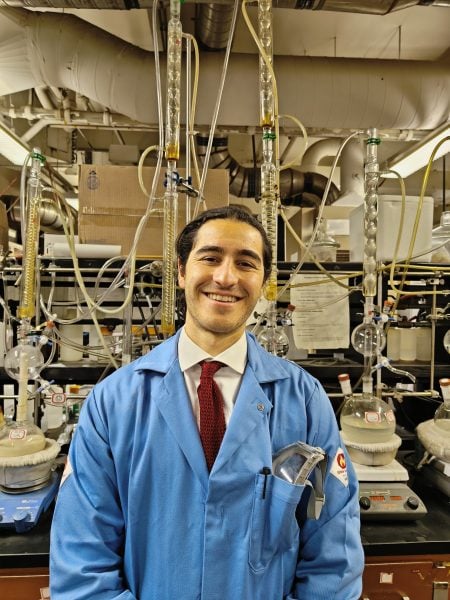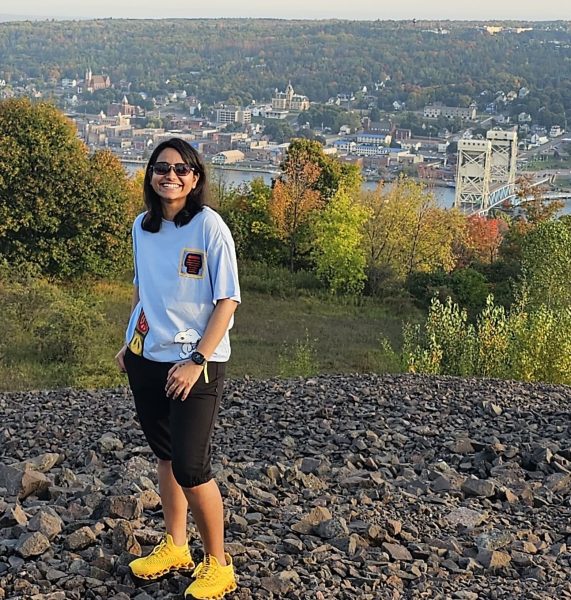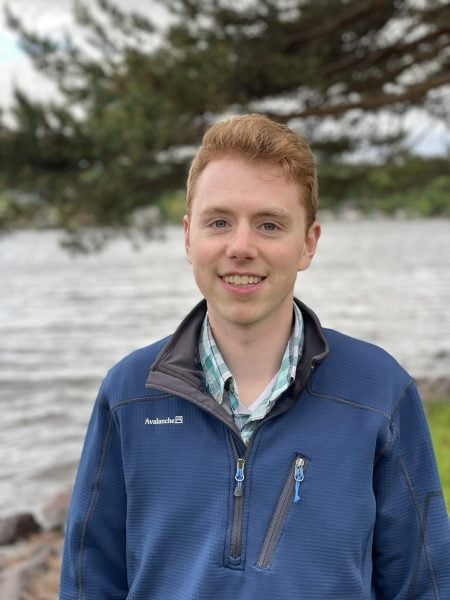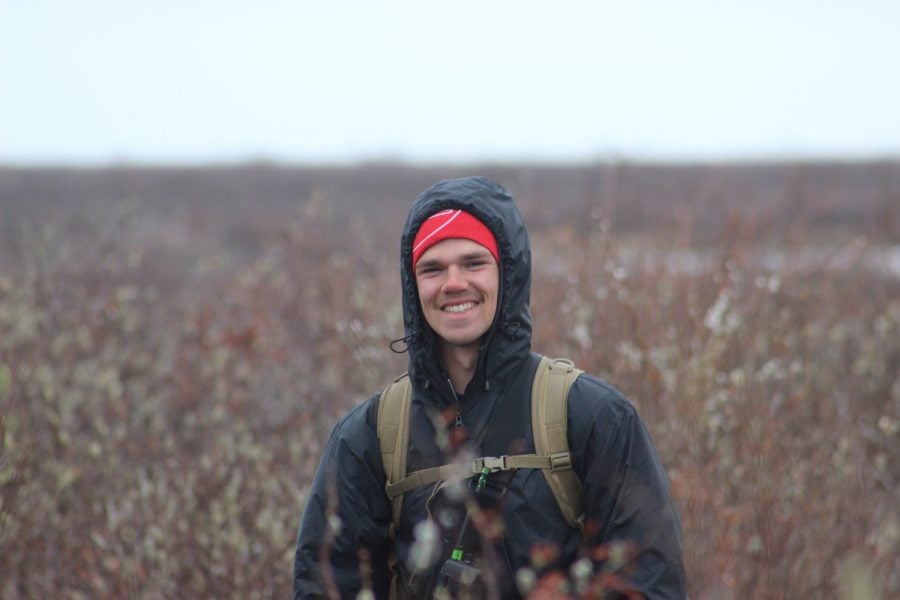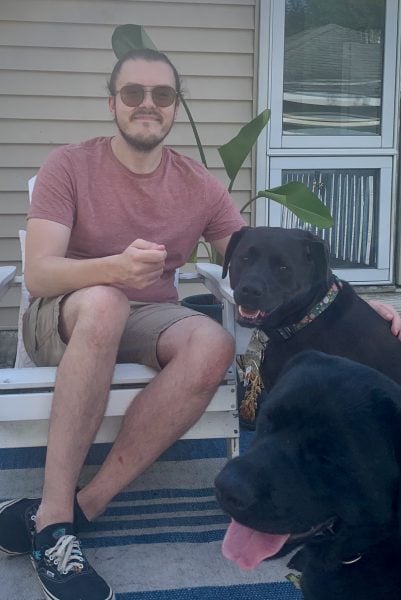“Reflecting on my academic journey, it is remarkable to see how my passion for electrical engineering and optics has evolved and deepened over the years. Starting with a Bachelor’s degree in Electrical Engineering, I embarked on a path that led me to Michigan Technological University (MTU) in 2018 for my Master’s degree. It was during my Master’s studies that I discovered a profound interest in optics, which set the stage for my PhD journey.
In 2020, I began my PhD in Electrical Engineering at MTU under the guidance of Dr. Guney, focusing on optics and machine learning in optics. As my research progressed, I continued to explore the fascinating realms of turbulent medium imaging. In 2022, an exciting opportunity arose when I joined Dr. Askari’s lab, thanks to an NSF grant aimed at improving imaging through atmospheric turbulence for geology and volcanology applications. This collaborative endeavor, under the supervision of both Dr. Guney and Dr. Askari, has been incredibly rewarding. Our work has centered on employing Active Convolved Illumination (ACI), an advanced optical method that addresses system imperfections, and deep learning methods to tackle atmospheric distortion, improving the moiré apparatus’s capability to measure ground displacement near active volcano vents.
Teaching has always been a passion of mine, and since joining MTU, I have been actively involved in teaching. In my first year as a TA, I was honored to receive the Outstanding Graduate Student Teaching Award in the Electrical Engineering department. Additionally, I was selected to be the graduate instructor for the Signals and Systems course, an experience that allowed me to share my enthusiasm for engineering with students, simplify complex concepts, and witness their moments of realization.
Outside of academics, my time at MTU has been enriched by sports. The excellent sports facilities at MTU have allowed me to become an indoor soccer champion and a softball champion, activities through which I have forged lasting friendships and maintained a balanced lifestyle.
Receiving the PhD finishing fellowship from the Dean of the advisory panel is a tremendous honor. My current work on enhancing imaging through a turbulent medium has significant implications for geological and volcanological studies, and this fellowship will provide the necessary resources and time to ensure that my research contributes meaningfully to the field.
As I look towards the future, I am inspired by the possibilities that lie ahead. My main goal in starting graduate school was to learn how to conduct research and improve my self-learning skills. I am committed to advancing research in imaging through turbulent volumes and contributing to the broader field of optics. With gratitude and determination, I am excited to continue my work and make meaningful contributions to the field of electrical engineering and beyond.”
